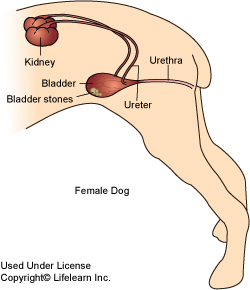
If you suspect that you may have cystitis caused by bacteria, it is a good idea to see a doctor immediately. A woman’s urethra is closer to the rectum than a man’s, and this means that the bacteria can spread easily. Symptoms of bacterial bladder infection include a burning sensation when peeing, cloudy urine, and an overpowering urge to urinate. Treatment for bacterial bladder infection generally involves antibiotics, usually a low-dose for several months.
Infections of the urinary system include the kidneys, ureters, and bladder. The kidneys filter waste from the blood and regulate the concentration of various substances. The urethra is a tube that leads the urine from the kidneys to the bladder and out of the body. Bacteria from the outside enter the urinary tract and cause cystitis. Women are more likely to get this condition than men because the urethra is shorter and close to the bottom. Infections of this organ can cause pain during urination or blood in the urine.
A general practitioner diagnoses cystitis by evaluating your symptoms and analyzing your urine. If the infection is caused by bacteria, the doctor will prescribe antibiotics. These antibiotics will work to cure the infection and prevent it from returning. They are also effective in reducing the number of cystitis episodes you will experience. The best way to prevent recurring cystitis is to take low doses of an antibiotic regularly https://cth.co.th/roxithromycin/. The recommended dose is one at night.
Your doctor will likely prescribe antibiotics to treat the symptoms of the infection. The antibiotic fights bacteria and helps you get better. Taking antibiotics regularly will help reduce the number of episodes of the disease. Once the bacteria are eliminated, the infection will disappear. If the bacteria is still present, you should visit a doctor to make sure you are not suffering from another infection. It is best to see a doctor for an accurate diagnosis and treatment.
Symptoms of cystitis caused by bacteria vary. Patients may experience a burning sensation when passing urine, or they may feel a heightened urge to urinate. The pain can be so severe that you may even experience cramping in your abdomen. Moreover, you may be uncomfortable and have to visit a doctor regularly for treatment. It’s important to find out the exact cause of your infection. If the causes of the infection are not clear, your doctor will need to perform diagnostic tests.
Your GP will determine whether cystitis is caused by bacteria or a nongenital infection. The GP will order an antibiotic to treat the infection and will examine your bladder to rule out other underlying conditions. Afterward, antibiotics should have a positive effect on the inflammation. It’s important to see a doctor as soon as possible. It’s important to remember that there is no such thing as a cure for cystitis.
Your GP will determine whether cystitis is caused by bacteria or by another cause. If you experience the symptoms of a urinary infection, your GP may recommend antibiotics for you.
A low dose of antibiotic will help you reduce the number of episodes you experience as well as the time it takes for symptoms to go away. If a GP suspects bacteria, the infection can be treated with antibiotics.
Your health care provider will also do a urine test to confirm if cystitis is the cause. The urine sample is sent to a laboratory for analysis. However, if symptoms persist, it is recommended to seek medical attention. Medicines will only help you if the problem is caused by bacteria. You should always avoid alcohol and deodorants as these products can lead to serious health problems.
If you have symptoms of cystitis, you should immediately contact your doctor and the competent health website https://cth.co.th/. Symptoms can range from mild tingling to a painful burning sensation. Your doctor will prescribe antibiotics. It is advisable to see a doctor as soon as you notice persistent pain. If you have a chronic infection, the antibiotic should be taken for at least six months so that it does not linger.